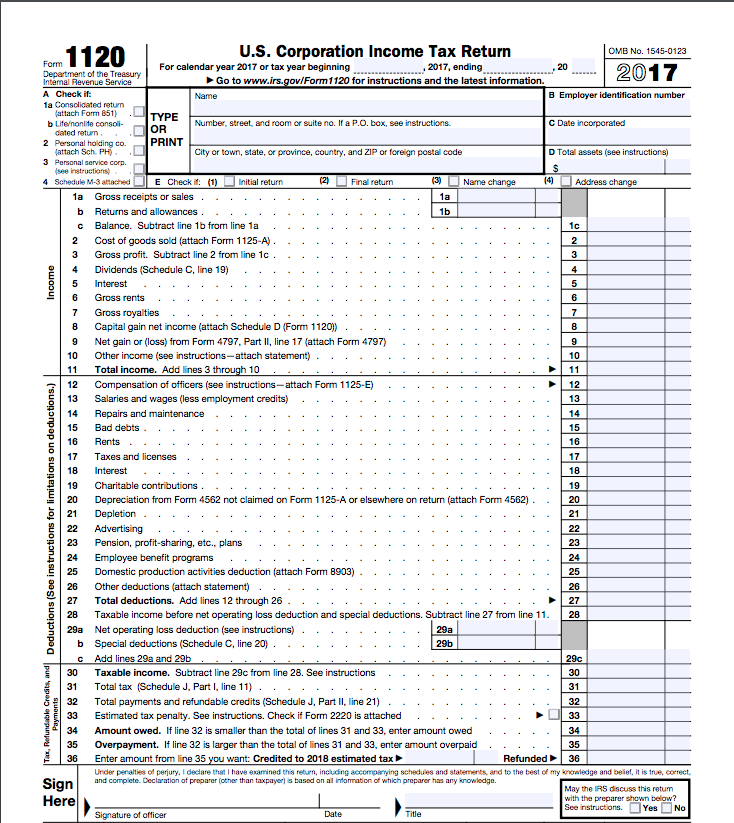Originally published on Forbes.com.
WalletHub has just come out with its annual Corporate Tax Report. Based on the detailed information assembled by WalletHub’s data analysts, John Kiernan tells us “The overall tax rate that S&P 100 companies pay, around 28 percent, is basically unchanged compared with 2014″ (Emphasis added). There is also commentary by experts such as W. Eugene Seago, who thinks it is unpatriotic to do an inversion and Luke Watson who suggested that maybe inversions are not such a hot idea. Then there is a chart that gives percentage tax rates. There is one big problem. The rates are not what the companies paid.
Facebook – Love Those Stock Options
To take an extreme example Facebook is indicated as having an overall tax rate of 40.5%. I can actually tell you how they got that number. According to its 2015 10-K (Page 57) Facebook had “Income before provision for income taxes” of $6.194 billion and a “Provision for income taxes” of $2.506 billion which, rounded, works out to 40.5%. Facebook did not however pay $2.506 billion in income taxes. You have to dig a little for that number. It is on Page 61 as part of the “Supplemental cash flow data”. It is $273 million. That means that Facebook actually paid 10.9% of its pretax income in income taxes.
I know what you are thinking. Must be deferred taxes. They might not be paying this year, but it will catch up with them in the future. That’s not it. Facebook actually has $151 million in deferred tax assets on net. Reconciling the amount paid to the amount of the provision is not a required disclosure, so I can’t tell you exactly what makes up the difference, but I can point you to a big piece of it. On page 59 – Consolidated Statement of Stockholders’ Equity – you will find “Tax-benefit from share-based award activity” $1.853 billion.
The Tax-benefit from share-based award activity is not like deferred taxes from differences between book and tax depreciation. It is a permanent difference between the book deduction for share-based compensation and the tax deduction. The people at FASB don’t think the savings from that deduction should be included in computing net earnings. So the savings is accounted for as a contribution to capital.
Another disclosure not currently required, although there is a proposal on it, is the breakdown of the amount paid, so we don’t know how much, if any, of the $273 million was paid in federal income taxes. Given that Facebook on page 79 discloses that it has a $2.7 billion net operating loss carryover, it would not surprise me at all to find that Facebook has never actually paid any federal income tax, despite the substantial provisions that you see.
Berkshire Hathaway And The Charge That Donald Trump Loves
I should disclose here that a substantial portion of my unimpressive net worth is in Berkshire Hathaway stock. WalletHub has BH with a rate of 30.1%. Going to the BH 2015 K-1 (page 68) we find “Earnings before income tax” of $34.946 billion and “Income tax expense” of $10.532 billion, which is 30.1%. The amount paid which you will find on page 87 was $4.535, which is just 13.0% of pretax income.
In the case of BH, much of the difference comes from faster depreciation for tax purposes In one of the debates Donald Trump mentioned how much he loves depreciation. Warren Buffett has a more nuanced view of it). Berkshire’s net deferred tax liability grew by $1.263 billion. And as long as the company continues to put more property in service, at least on a dollar basis, than it retires that deferred tax liability, currently $63.199 billion will likely continue to grow.
Do The Experts Know This?
Professor Seago and Professor Watson are accounting professors. Of course they know, as they told me that the income tax expense and the amount of tax paid are “two very different things”. The focus of the rules for “Income tax expense” is to have net income clearly reflect the results of the company’s operations and also to prevent companies from using the income tax provision to game their earnings.
A probably unintended consequence of it is to detach “Income tax expense” from more than a passing relationship with the amount of income taxes actually paid.
Why Is This Important
I guess it is a prejudice of mine as a member of the reality-based community. The WalletHub numbers find their way into stories with titles like
“These are the giant US companies that paid the least in taxes last year” – Business Insider
“WalletHub: Three Oklahoma-based companies pay highest corporate taxes” – 8ABC Tulsa
“The Top Tax Rate is Killing American Business” – Live Trading News
These articles all refer to what the companies are paying, but they use the “Income tax expense” not the amount paid. And as most CPAs and WalletHub’s own experts and now you all know the “Income tax expense” and the amount paid are “very different things”. If what companies are paying in corporate income tax is important, then we should probably make judgments about it based on what the companies are, in fact, paying.
My Pledge To You
I have assigned myself the task of constructing a table that will compare the income tax provision of the top hundred companies with the amount actually “paid”. You can read about the top seven here. In only one case was the amount paid more than the “income tax expense” (Microsoft with an expense of 15% and 19.7% paid). We’ll see if that trend stands up. The wildest difference in that group was Amazon which had an income tax expense of 60.5% and paid 17.4%.
I’m shooting for Monday, but am not making a firm promise at this point. So stay tuned.































































































